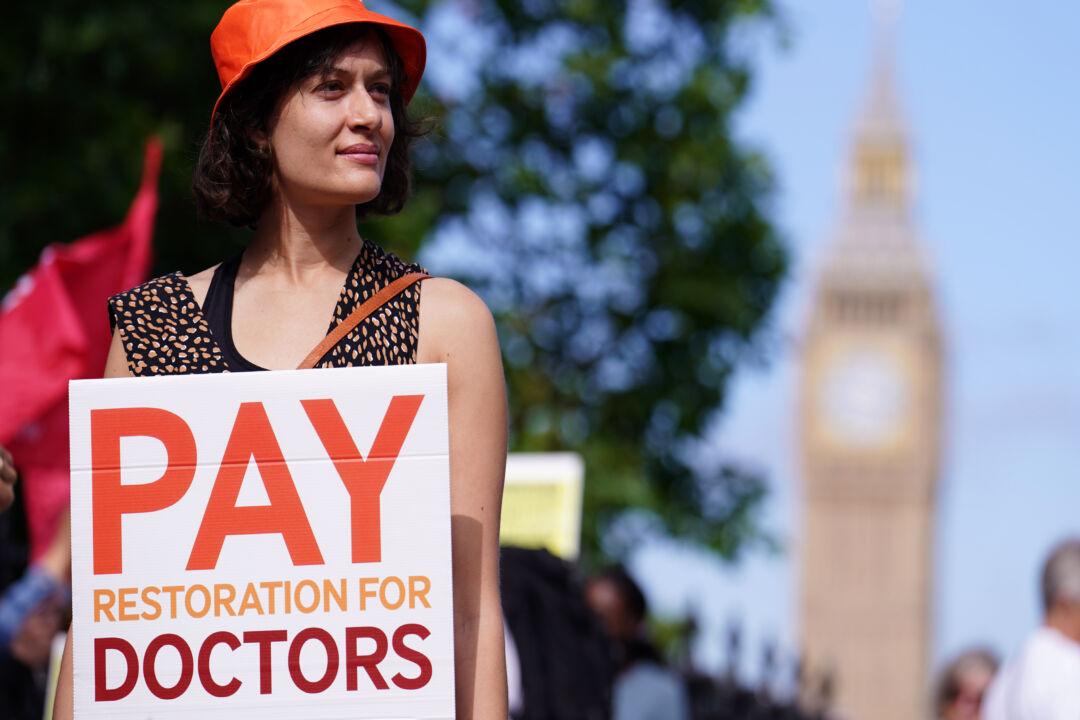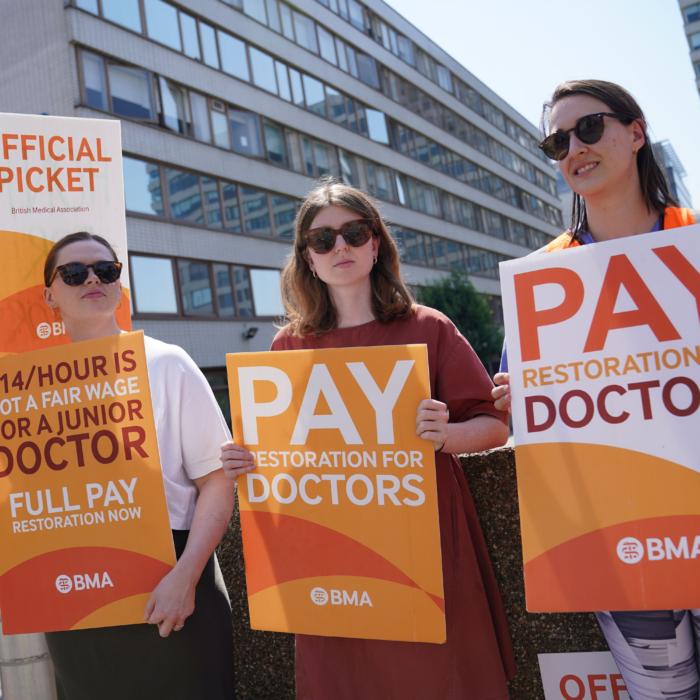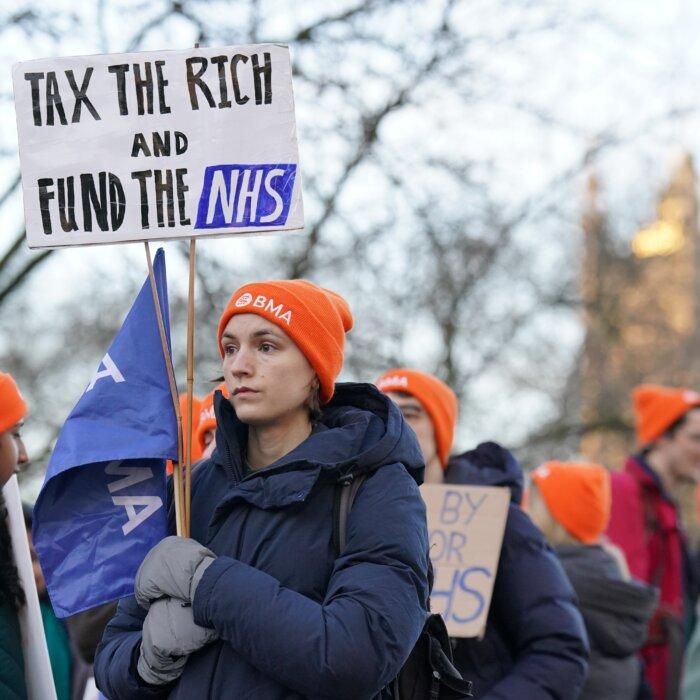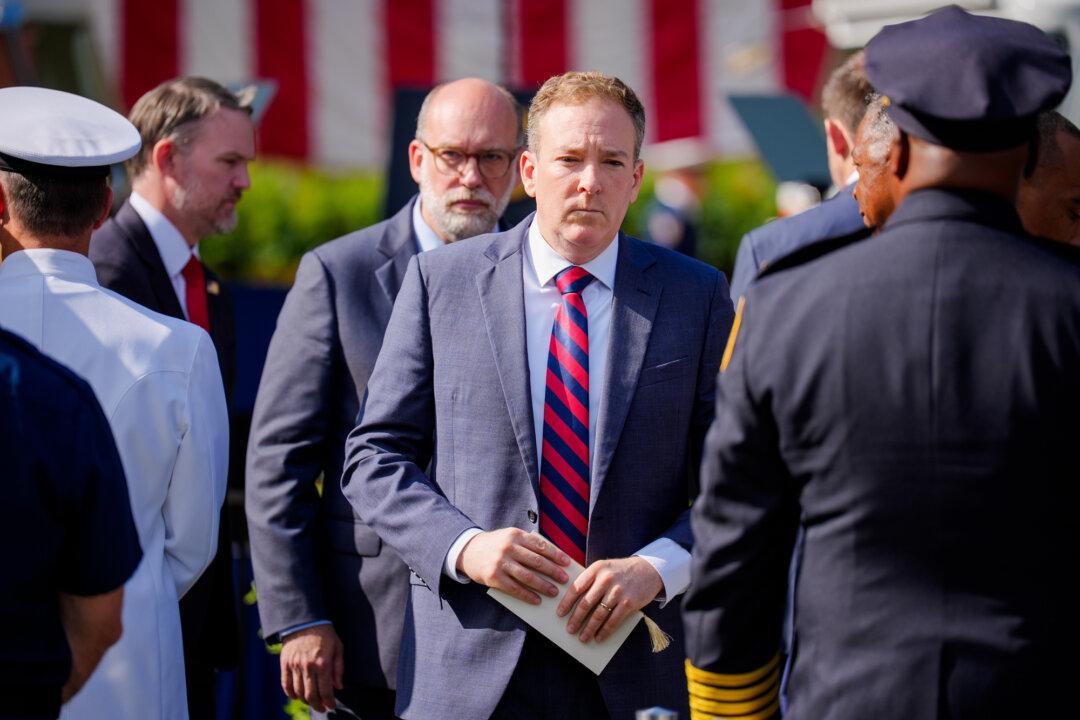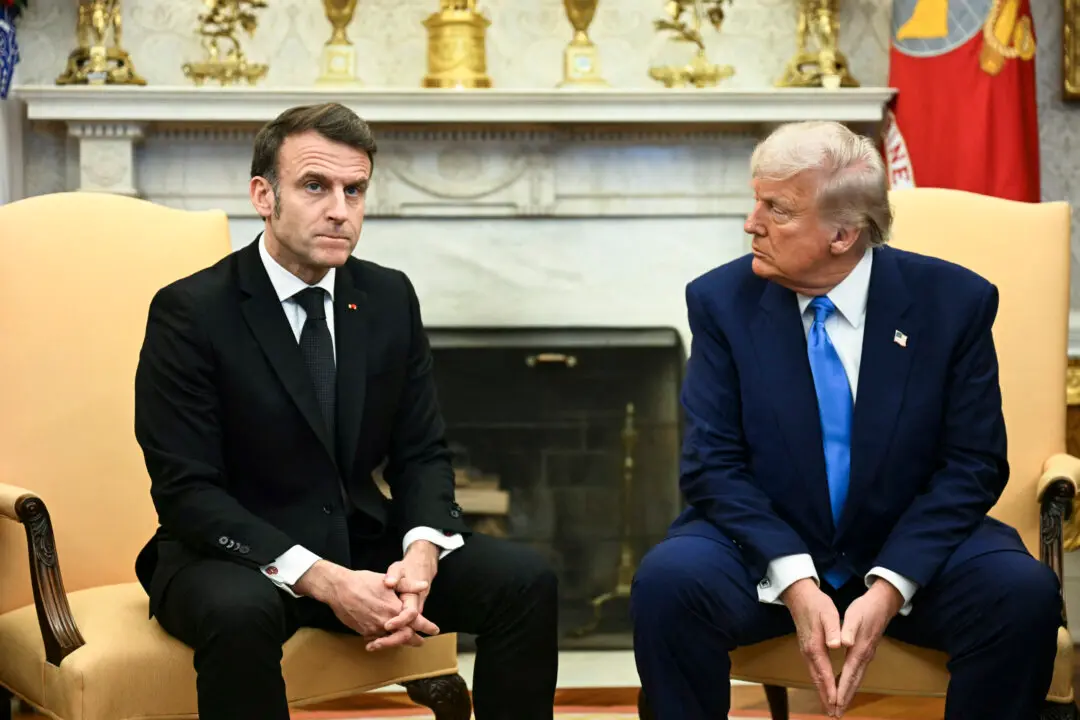Junior doctors in England have begun a five-day strike over a long-running pay dispute with the government.
Members of the British Medical Association (BMA) embarked on an 11th round of strikes on Thursday, amid a warning from the NHS of “widespread disruption” to health care services.
The BMA leadership said that while doctors don’t want to strike, they have been forced into this position after Prime Minister Rishi Sunak failed to commit to pay restoration.
In May, the government and the BMA entered mediated talks to try and resolve the dispute. But they failed to reach an agreement before parliamentary business was concluded in the run-up to the general election.
“By first calling an election and then refusing any attempt to engage he [Mr. Sunak] has shown he clearly had no intention of sorting this dispute out in good time,” said the co-chairs of the BMA junior doctors committee, Dr. Robert Laurenson and Dr. Vivek Trivedi, in a statement.
The BMA said that at a time when Mr. Sunak is making “plenty” of election pledges, committing to the pay rise for junior doctors only means “making one more.”
Health Secretary Victoria Atkins called the decision to stage a strike in the middle of an election campaign “cynical.”
Impact on Services
The NHS has warned of the likely widespread disruption to the health care service at a time of heatwave health alerts across England.“Nevertheless, the NHS has, as always, been preparing extensively for these strikes and it’s important that people continue to come forward for care if they need it,” said NHS London’s medical director Chris Streather in a statement.
He urged people to continue using the NHS 999 emergency service and the 111 service for other health concerns.
During the five-day strike, GP services and pharmacies will be available for patients to access in the normal way. Patients whose planned appointments haven’t been postponed have been urged to attend as normal.
The walkout comes at a challenging time for some hospitals in London, which were hit by a cyber attack that took place earlier in June.
The BMA said that some doctors at Lewisham and Greenwich, Guys and St Thomas’s, and Kings College Hospital are exempt from the strike action to “prevent dangerous delays to cancer care.”
The NHS Confederation said in a statement that the strikes will be a “bitter pill to swallow” for staff who cover for the walk-outs.
While its members understand the pay grievances of junior doctors, the NHS Confederation said the strikes will lead to cancelled appointments and operations.
This will “further jeopardise attempts to tackle care backlogs and improve performance,” the organisation said.
The Patients Association has warned that the prolonged industrial dispute has already caused “hardship for many patients.” As a result of further disruptions, patients’ health will be comprised, the association said.
“With waiting times at record highs, further cancellations of thousands of appointments and procedures is simply unacceptable from a patient viewpoint,” the Patients Association said in a statement.
Six in ten Britons believe that the government is doing a bad job of negotiating with unions and preventing strikes. When asked whether a Labour government would do a better job, 39 percent agreed, 33 percent said it would make no difference, and 18 percent believe it would be worse.
